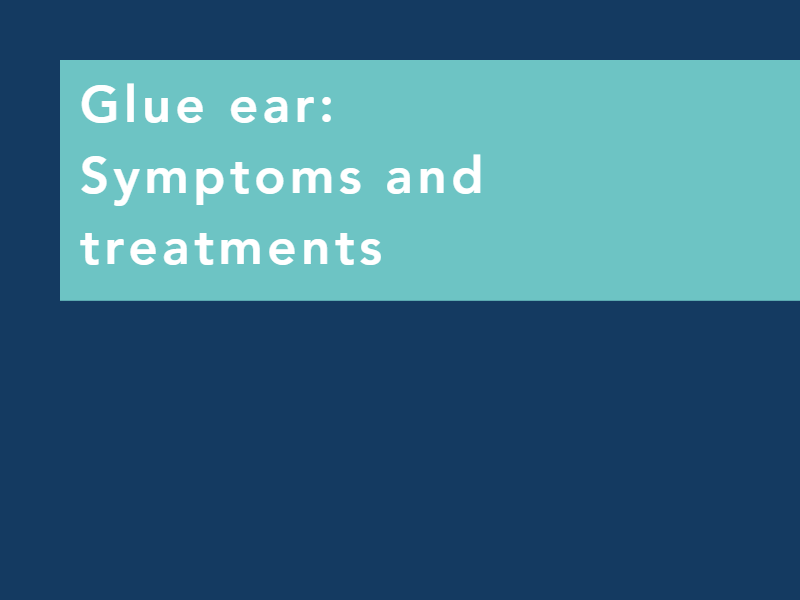Glue ear (also known as ‘otitis media with effusion’ or ‘serious otitis media’) is a common middle ear condition. The main symptom is temporary hearing loss, but it is treatable.
Glue ear causes the middle ear air cavity to produce a sticky fluid (‘glue’), causing hearing impairment. However, the level of hearing loss is often minor and unlikely to cause total hearing loss.
Glue ear is very common, mainly affecting children between two and five. Adults can also develop the condition.
What are the causes and symptoms?
No one knows precisely what causes glue ear, but healthcare professionals believe it’s linked to the eustachian tube not functioning correctly. The eustachian tube connects the middle ear to the nose and sinuses, ensuring equal air pressure on both sides of the eardrum.
If the tube becomes blocked, it causes pressure inside the middle ear to drop. Fluid drains from the surrounding tissue to fill up the middle ear. With time, this fluid becomes sticky and stops the eardrum and middle ear bones (called ossicles) from vibrating correctly. The eardrum and ossicles are essential for fully functioning hearing.
The most common symptom of glue ear is temporary hearing loss. However, other symptoms may include earache or tinnitus. You might also feel pressure deep in your ear.
Is glue ear treatable?
Glue ear usually clears up on its own. However, if the condition persists longer than a few months, it can cause permanent hearing damage.
When treating chronic glue ear, you may be offered surgery to place miniature plastic tubes known as a grommet into your eardrum. Grommets are designed to help drain fluid from your middle ear.
They are usually inserted under general anaesthetic but fall out on their own as the eardrum heals in roughly six to twelve months. However, more grommets may be needed if glue ear returns which is something that the ENT consultant you’re seeing will jointly decide with you.
If you are suffering from glue ear in both ears, you may be recommended to use hearing aids in the interim whilst you wait for surgery, which again is something that would be discussed with you by your ENT consultant.
Diagnosing glue ear
Glue ear can be challenging to detect without a professional diagnosis, particularly if you are experiencing only mild hearing loss symptoms. If you are over 60, it is recommended that you book in for a routine hearing examination with a qualified audiologist at least once a year.
However, if you notice a difference in your hearing or are experiencing pain in your ears at any age, you should book an examination as soon as possible.
To book a free hearing examination with the experienced and friendly audiologists at your local branch of The Hearing Care Partnership, call our dedicated patient support team on 0800 52 00 546 or book an appointment online.

